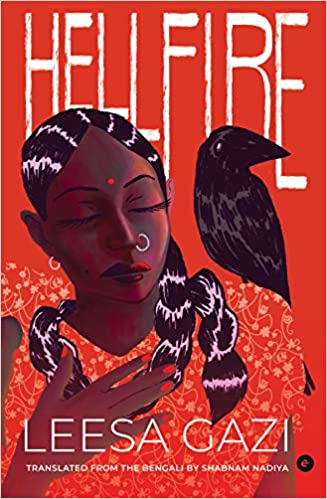Leesa Gazi’s Hellfire originally came out in 2010 as Rourob, marking her debut as a bold voice in the tradition of women’s writing from the subcontinent. Hellfire engages with certain tropes that remain relevant and persistent contexts in conversations about gender and the complex legacies of patriarchy.
The pivotal characters in the story are predominantly female, with the few male characters existing as peripheral entities lurking behind trees in the park, hiding away in the balcony, or emerging as an unwelcome presence from a distant past. The tale unfolds in Dhaka on Lovely’s birthday, when her mother uncharacteristically allows her to go out alone to Gausia market. Lovely embarks on her first solo outing with the hint of a promise: ‘…The holy prophet received his revelations from the Creator at forty…Something special happened at forty, something special was going to happen today.’ There are layers to Lovely and this is indicated when ‘…the man inside her head took his chance to speak up. His voice sounded broken, pleading…’ This is not going to be a simple story.
Lovely and her younger sister Beauty are a study in contrast, ‘One sister is like a gape-jawed fish, dying to go out of the house every single second, and the other one won’t budge even if you beat her up.’ While Lovely is seemingly more manageable and pliant, Beauty spends all her days performing elaborate beauty rituals and watching Hindi movies. They live their lives within the harsh limits of many invisible lines drawn by their mother Farida Khanam, a force of nature who rules over the household and the people in it, with an iron fist.

